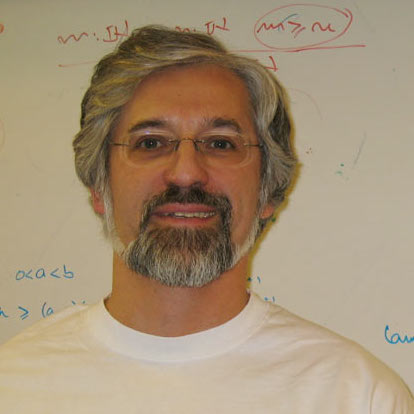After the outbreak of the coronavirus pandemic, a few scientific communities faced cancellations of conferences, seminars, and research visits. Motivated by the need to establish new communication channels, a series of seminars called One World Seminars was initiated, as an attempt to keep the communities together. The pioneer of this project was One World Probability Seminar that inspired several other One World projects (among which, you might know the One World Combinatorics on Words Seminar).
This is a new series of online research seminars on topics related to Formal Languages and Automata Theory: One FLAT World Seminar (yes, we know, we broke a pattern here: we should have named it “One World FLAT Seminars”, but this name is funnier).
The main goal of this project is to keep the community working in our area alive and updated, by bringing together researchers from all over the world in a virtual, accessible, and inclusive environment. We believe that recently our community is quite fragmented, so having a common platform to share old and recent results on the one hand would help established researchers working on similar topics to find collaborators and fresh ideas and, on the other hand, young people, new in the area, would have a clear vision of what is going on in this branch of theoretical computer science.
The talks will be accessible via Zoom and will run, at least at the beginning, on a monthly basis.
Speakers Wanted!
If you would like to volunteer to be the speaker at one of our sessions in 2026, please feel free to drop us an email with the details of your talk.
Upcoming talks
-
We study a variant of the synchronization game on finite deterministic automata. In this game, Alice chooses one input letter of an automaton \(A\) on each of her moves while Bob may respond with an arbitrary finite word over the input alphabet of \(A\); Alice wins if the word obtained by interleaving her letters with Bob’s responses resets \(A\). We prove that if Alice has a winning strategy in this game on \(A\), then \(A\) admits a reset word whose length is strictly smaller than the number of states of \(A\). In contrast, for any \(k\), we exhibit automata with... [Read More]
-
The structure of Abelian automata
Speaker: Klaus Sutner -
Optimal enumeration of regular pattern matches
Speaker: Florin ManeaEnumerating all matches of a regular expression with capture variables (variable regex, for short) to a document is a fundamental task in textual information extraction, e.g., in connection to document spanners. State-of-the-art results [Amarilli et al., ACM TODS 2021] show how the matches of a variable regex, representable by a sequential variable-set automaton, to a document can be enumerated with delay constant in the size of the document and polynomial in the size of the query, after a preprocessing requiring time linear in the size of the document and polynomial in the size of the query. [Read More] -
Title TBA
Speaker: Dmitry Chistikov -
Automata-based verification of quantum circuits
Speaker: Ondřej LengálDevelopment of quantum programs is hard due to their intricate structure and inherently probabilistic nature. Computer-aided tool support is therefore essential. Computer-based reasoning over quantum programs is, however, also challenging due to the exponential size of the program’s state. In this talk, I will present a recent framework for automated formal verification of quantum programs that uses automata to represent complex sets of quantum states compactly. -
Title TBA
Speaker: Markus Holzer





